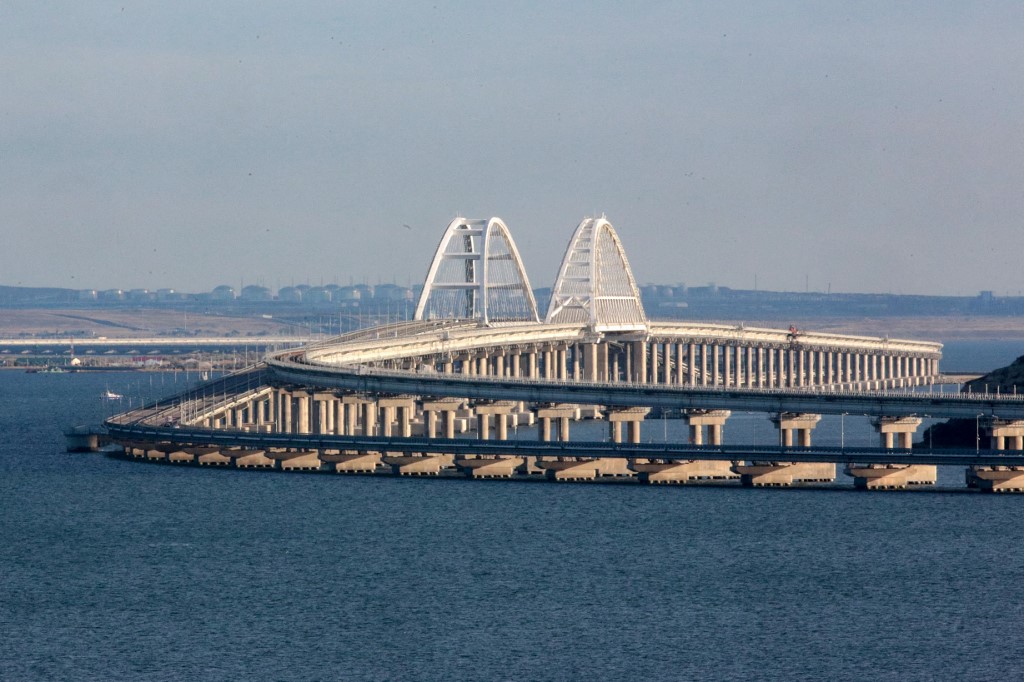Reuters reported on Monday that a unit of a Moscow oil refinery, capable of processing six million metric tons of distilled crude per year, has been forced to suspend operations after it was hit by a Ukrainian drone strike on Sunday.
The “Euro+” unit of Gazpromneft Moscow, which represents half of the refinery’s total capacity, could be shut down pending repairs for almost a week, several sources told the wire service.
JOIN US ON TELEGRAM
Follow our coverage of the war on the @Kyivpost_official.
Gazpromneft is the oil subsidiary of Gazprom, Russia’s largest company.
On Sunday, Russia suffered its largest drone assault in history, as 158 Ukrainian drones targeted multiple regions, according to a statement from the Russian Ministry of Defense. Reports from regional authorities suggested that the actual number of drones may be even higher.
Aside from the oil refinery in the capital region, the drones hit two other power plants in other regions. One such attack ignited a fire at the Konakovo GRES power plant in the Tver region, the eighth largest thermal power plant in the country.
⚡️Another video The moment the 🇺🇦Lyuty kamikaze drone hit the 🇷🇺Moscow oil refinery pic.twitter.com/lQF6ueeh7W
— 🪖MilitaryNewsUA🇺🇦 (@front_ukrainian) September 1, 2024
Orlovs for ordnance: Putin sends steeds to North Korea in thanks for artillery shells
Several news outlets have been describing a brand of “animal diplomacy” on the rise between Moscow and Pyongyang recently, with the latest example being Russian President Vladimir Putin’s gift of 19 stallions and five mares to North Korea’s Kim Jong Un in gratitude for promised shipments of artillery shells to Moscow.

Zelensky: November-December Sees Record Russian Losses in Combat
The Times (UK) reported this week that Putin sent his fellow autocrat two dozen Orlov Trotters, a whitish-grey horse that is described as Kim’s favorite breed. North Korean propaganda has famously featured the “Beloved Father” and “Peerlessly Great Man” riding white horses along the snowy slopes of Mount Paektu.
This was not the first time that Putin has exercised such livestock options in his business dealing with Kim. In August, Politico reported, Moscow sent 447 goats to the underfed North Korean population in order to build their supply of dairy products.
And in June, Reuters reported, as Putin became the first Russian leader in a quarter century to visit the rogue nation, Kim expressed his gratitude for the two countries’ budding trade relations by gifting Putin a pair of white Pungsan dogs, a North Korean cline.
Putin’s easy-breezy visit to ICC charter country infuriates Ukraine
Meanwhile, Putin continued his ongoing Asian tour to Mongolia on Monday, wholly unfazed about outstanding warrants for his arrest by the International Criminal Court despite the fact that Ulaanbaatar is a signatory to the ICC’s charter.
Putin is wanted for various war crimes, chiefly his troops’ abduction and deportation to Russia of Ukrainian children in 2022.
The Russian president was welcomed by an honor guard on Monday in the Mongolian capital, rather than with handcuffs, and Kyiv is furious. A spokesman for the Ukrainian foreign ministry, Georgiy Tykhyi, said the warm welcome was a “heavy blow” to the ICC’s legitimacy and promised “consequences”.
“Mongolia allowed the indicted criminal to escape justice, thereby sharing responsibility for his war crimes,” Georgiy Tykhyi posted on social media. “We will work with partners to ensure that this has consequences for Ulaanbaatar.”
Mongolia, which, thanks to Soviet influence starting in the 1940s, uses a Cyrillic alphabet and has retained close relations with neighboring Russia, on whom it is almost entirely dependent for its energy needs.
This is NOT how an ICC suspect and fugitive from international justice should be received in a State Party to the @IntlCrimCourt. By failing to arrest #Putin, #Mongolia is violating the Rome Statute and its own legislation. Rule of law is in trouble in 🇲🇳.pic.twitter.com/dsPf8rUf3L
— Sergey Vasiliev (@sevslv) September 2, 2024
Russia’s advances in August are largest monthly gains in two years, but AFU’s northern incursion picks up twice as much territory
On Monday night, Russia launched missile attacks on Dnipro and Kharkiv with at least one fatality reported. Residential buildings were damaged in the strike on Dnipro, but no destruction was reported in Kharkiv in this latest volley of missiles.
“Sadly, we already have information that one person was killed and three were injured as a result of the missile attack on Dnipro,” Serhii Lysak, the head of the Dnipropetrovsk regional military administration, posted to social media. “Our condolences go out to their families and friends.”
Not long before the attacks, the Ukrainian Air Force had issued warnings of possible missile strikes from the east and an unidentified high-speed projectile moving toward Dnipro.
A correspondent from state news Ukrinform reported hearing an explosion in Zaporizhzhia, also on the Dnipro River, where the Air Force similarly had warned of attacks and air raid sirens were heard in the evening. As of early Tuesday morning, no casualties or damage were reported there.
The General Staff of the Armed Forces of Ukraine (AFU) stated Monday night that fighting continued along the river and that Ukraine’s troops repelled two attacks just upstream from Kherson, near Nova Kakhovka.
Kherson region: "In the Dnipro direction, the russian invaders were defeated, twice attacking the positions of the Armed Forces of Ukraine."
— Michael MacKay (@mhmck) September 2, 2024
Source: General Staff of the Armed Forces of Ukraine operational information at 22:00 on 2 September 2024 regarding the russian invasion pic.twitter.com/MyuNo9FRRC
Overall, however, according to analyses done by AFP, Russia’s territorial gains in August represented its greatest monthly gains since October 2022. Moscow’s troops in August pushed the front lines in Ukraine’s east and south some 184 square miles in August, according to data supplied by the Institute for the Study of War (ISW).
By contrast, in the same month, the AFU picked up some 425 square miles of territory in just two weeks of its incursion across its northeastern border with Russia.
You can also highlight the text and press Ctrl + Enter









